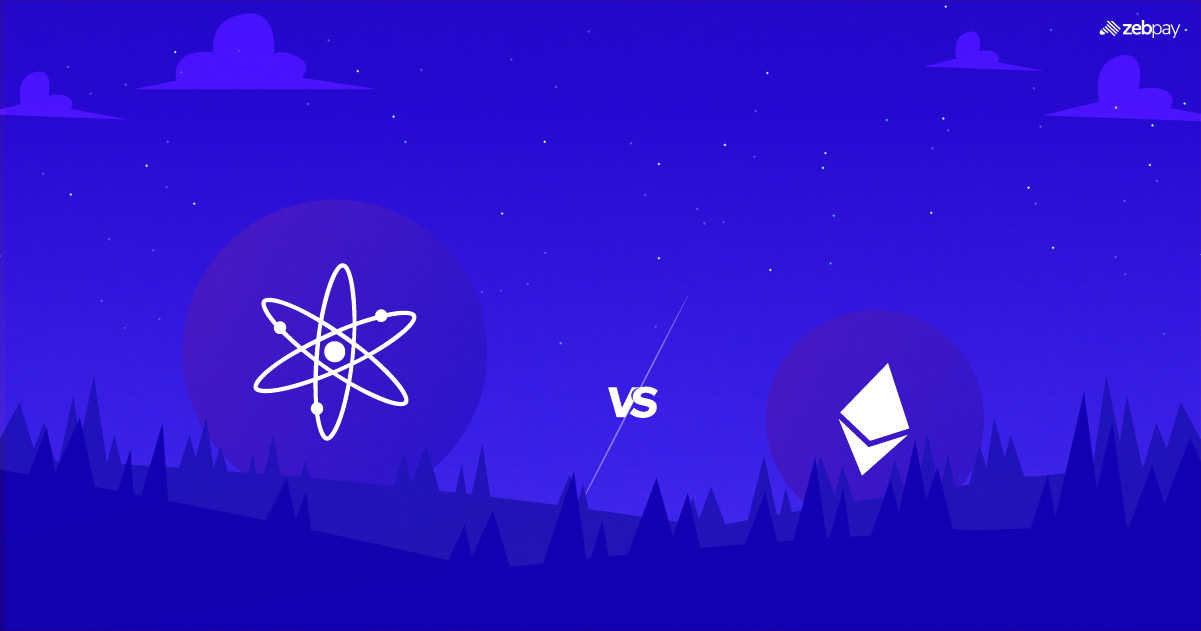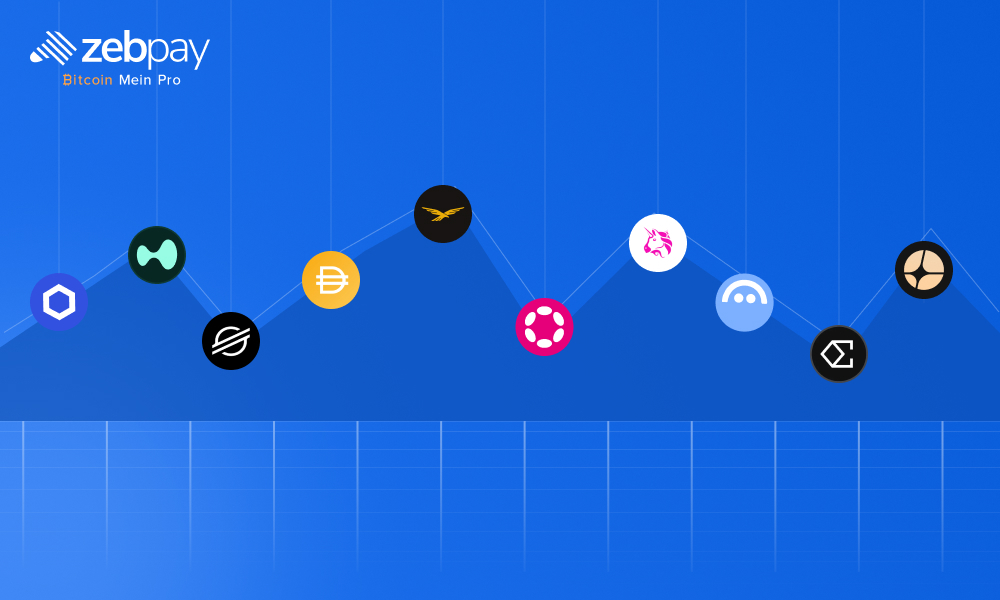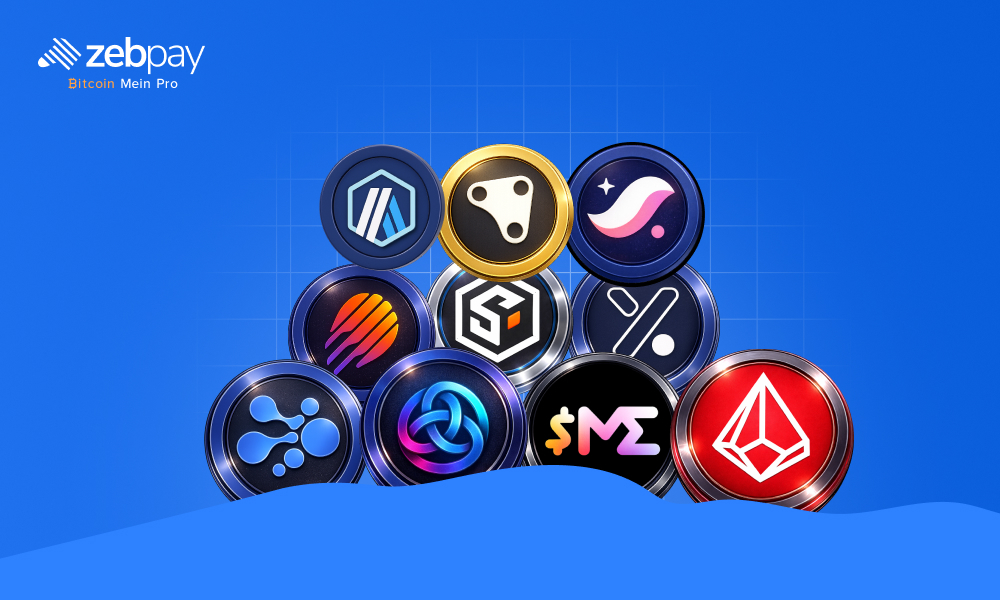Ethereum is one of the leading blockchain projects globally, second only to Bitcoin in its influence on the crypto market, particularly with its smart contracts and decentralized application capabilities. However, Ethereum faces challenges such as high transaction fees and network congestion.
In response to these issues, several blockchain projects have emerged with innovative solutions. One of the most promising competitors is Cosmos. So, what exactly is Cosmos, and how does it stack up against Ethereum?
Cosmos Introduction
Cosmos is a crypto project often referred to as the “Internet of Blockchains.” It aims to address key challenges faced by older blockchains, including issues like limited interoperability, low scalability, and high transaction costs.
The platform achieves this by utilizing a network of interconnected blockchains to accelerate transactions and enhance scalability. The Cosmos ecosystem includes the Cosmos Hub, which serves as the central blockchain, alongside multiple independent sidechains. These sidechains are easily customizable for developers and come with modular features for security, governance, and tokenomics.
The platform’s native token is ATOM, which currently holds a market capitalization of $1.93 billion and is priced at $4.95 as of the latest update.
Ethereum Introduction
In recent years, Ethereum has solidified its position as a leading force in the crypto space, particularly in decentralized finance (DeFi) and decentralized applications (dApps). As an open-source blockchain platform, Ethereum built upon the foundations laid by first-generation blockchains like Bitcoin, introducing the groundbreaking concept of smart contracts.
Smart contracts are blockchain-based programs that automatically execute once predefined conditions are met. This feature has the potential to streamline various processes, such as automating asset transfers and enabling decentralized lending, which would otherwise require significant time and effort.
Ethereum has continued to expand its influence, particularly within the NFT space, gaining substantial popularity among users. The platform’s native token, ETH, currently holds a market capitalization of $320.49 billion and is priced at $2,658.97 at the time of writing.
Read more: Ethereum Price Prediction
Ethereum vs. Cosmos: Differences
Network Structure
Ethereum and Cosmos have designed their networks very differently. Ethereum uses a monolithic architecture, where all users and validators operate on the same network. Transactions conducted on any platform pass through the main Ethereum chain, which can make the network highly congested.
On the other hand, Cosmos has a modular architecture, with several sidechains connected to the main Cosmos Hub. This allows developers to run sovereign blockchains for their applications, while also spreading validation over several different blockchains. This provides greater flexibility and scalability.
Interoperability
All applications built on Cosmos are interoperable with each other. The network includes an Inter-Blockchain Communication (IBC) protocol, which allows it to share data and tokens across multiple blockchains.
Ethereum is not interoperable. ETH tokens cannot be sent from one blockchain to another like Bitcoin or Ripple. This reduces the scope and ease of use of the blockchain.
Blockchain Trilemma
The blockchain trilemma states that blockchains must decide between decentralisation, scalability, and security. They can have at most two of the three characteristics, while the other one will lag behind.
Ethereum has long suffered because of this trilemma, choosing decentralization and security over scalability. However, Cosmos’ modular approach has ensured that it can resolve the trilemma and offer scalability alongside the other characteristics.
Read more: What Are Blockchain Layers
Cosmos vs. Ethereum: Benefits
| Crypto | Speed and Scalability | Developer Ease | Appeal | User base | Lifetime price rise |
| Cosmos | ✅ | ✅ | |||
| Ethereum | ✅ | ✅ | ✅ |
Fast and Scalable
Ethereum requires other solutions like sidechains and layer-2 scaling solutions to be able to match its demand. The base Cosmos network is scalable enough to handle all of its traffic and more. Thus, in terms of speed and scalability, Cosmos wins.
Developer Ease
Solidity development has become the standard in crypto thanks to Ethereum’s dominance. But Cosmos has this covered, as it allows you to port over existing Ethereum applications and create more through an Ethereum Virtual Machine (EVM)-compatible software suite. It also allows developers the flexibility to run a sovereign blockchain with its own features and tokenomics.
Appeal and User Base
As seen above, there is a vast difference in the market capitalization of the two platforms. Ethereum is much more widely used and accepted than Cosmos. If you choose to use Cosmos, you will be among fewer users and in a comparatively untested platform. In terms of wider appeal and active users, Ethereum is far superior.
Final Thoughts
The competition between Cosmos and Ethereum presents an exciting choice for crypto enthusiasts and developers alike. Cosmos brings a fresh, modular approach with its fast, scalable sidechains, offering a great environment for developers looking for flexibility and customization. However, Ethereum continues to be a dominant force in the crypto world, with years of development and an extensive user base. Its upgrades, such as the successful completion of the Merge, related to ETH 2.0, in September 2022 and the Ethereum Shanghai upgrade, also related to ETH 2.0, in April 2023, have significantly enhanced its scalability and performance.
If you’re looking for a well-established platform trusted by millions, Ethereum offers stability and a strong presence in the market. However, for those eager to explore innovative and high-performance blockchain solutions, Cosmos presents a promising opportunity. Ultimately, the best choice depends on investors’ preferences and needs, so it’s important to do thorough research and carefully consider how each platform aligns with your goals.
You can now buy both Ethereum and Cosmos on ZebPay India!
FAQs on Cosmos vs. Ethereum
Is Cosmos Better Than Ethereum?
Both Cosmos and Ethereum have their unique strengths. Cosmos stands out with its fast, scalable network that can easily expand by adding new blockchains, all while keeping costs low. On the other hand, Ethereum, with its recent upgrades, is positioned to address many of its scalability and cost challenges. Both platforms are exciting in their own right, and there’s much anticipation for how Ethereum’s improvements will further enhance its offerings.











